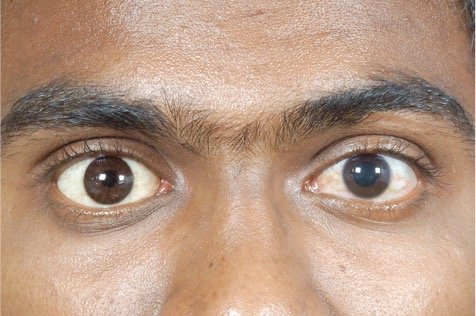NDP EyeCare | Dr. N D Patil | Dr. Gaurav Patil | Cataract | Glaucoma | Oculoplasty | LASIK
Our Latest Equipment is Best to keep your Vision perfect like Eagle!

What Is an Artificial Eye?
Why Obtain an Artificial Eye?
Who Needs an Artificial Eye?
Individuals facing any of the following often benefit:
Trauma that severely damaged the eye
Tumors or severe infections requiring removal
Congenital absence of one eye
Severe diseases that make the eye non-viable
In all these scenarios, ophthalmic and plastic surgeons guide patients through options: whether full prosthesis or a shell, immediate or delayed replacement.
How Dr. N. D. Patil Offers Artificial Eye Services in Nagpur
The Process of Getting an Artificial Eye
Getting a prosthetic eye involves multiple steps. Step by step, the procedure typically includes:
Consultation and Assessment
During this visit, the surgeon examines the eye socket, eyelids, skin, size, and health of surrounding tissues. He discusses whether immediate prosthesis (right after surgery) or secondary (after healing) works best, depending on whether enucleation or exenteration was performed.Impression Making
To achieve perfect fit, the ocularist takes an impression of the socket. This mould helps fabricate a prosthesis that sits naturally and comfortably.Colour Matching and Sculpting
Then the technician customises the iris colour, scleral tint, and veining to mimic the healthy eye. In Dr. Patil’s centre, artists and technicians collaborate to achieve realistic appearance.Trial Fitting
After fabrication, the prosthesis undergoes trial fitting. Adjustments follow, such as trimming margins so that eyelids close fully or correcting movement. Because comfort divides success, Dr. Patil ensures multiple fine adjustments if needed.Insertion and Follow-up
After final fit, Dr. Patil or his team inserts the prosthesis. They instruct patient on cleaning, removal (if removable), and maintenance. Then follow-ups occur to monitor healing, socket health, and to detect any irritation or discharge.
Benefits of Choosing Artificial Eyes from a Specialist
Choosing a specialist like Dr. Patil confers several advantages:
Personalised fit: He ensures each prosthesis matches the patient’s facial features and tissue conditions.
Quality materials: Using safe acrylics and durable coatings, the prosthesis resists wear and tear.
Cosmetic realism: Skilled techniques reproduce natural appearance, including iris detail and scleral colouring.
Comfort: Proper socket shape, eyelid closure, and weight reduce irritation, enhance blinking, and reduce socket dryness.
Emotional support: Specialists counsel patients on emotional aspects of eye loss; they restore dignity and self-esteem, not just physical appearance.
Aftercare and Maintenance
After getting a prosthetic eye, one must follow aftercare practices strictly to maintain both prosthesis and health.
Clean the prosthesis daily with recommended mild soap or saline rinse.
Avoid harsh chemicals, rough cloths, or alcohol solutions that may scratch or degrade the surface.
Blink often and use lubricating drops if dryness or irritation emerges.
Remove the prosthesis if advised (shell types often are removable) for cleaning and rest.
Regular ophthalmic checkups ensure socket remains healthy; adjustments may become necessary over time due to tissue changes.
Store the prosthesis properly when not in use to avoid contamination or damage.
Common Concerns and Misconceptions
Many patients have concerns. Here are some common ones, clarified:
Can I see with an artificial eye? No. Artificial eyes restore appearance only. They cannot restore vision.
Will people notice it’s artificial? When well-fitted and colour matched, most prosthetic eyes look very natural. Dr. Patil’s centre focuses on cosmetic detail to reduce detectability.
Is it painful? No. After healing, prosthesis causes little discomfort. Some irritation may occur initially, but specialists manage it.
How long does a prosthesis last? With proper care, prosthetic eyes last many years. However, periodic polishing, minor adjustments, and sometimes remaking might be needed, especially in children as facial growth continues.
Why Nagpur Is a Good Place for Prosthetic Eye Services
Nagpur hosts several reputed eye care specialists and clinics. Specialists offering prosthetic and ocular plastic surgery services serve the region, so patients do not need to travel to larger cities. Nagpur’s growing infrastructure, skilled technicians and availability of quality materials make prosthetic eye care accessible. Most importantly, experts like Dr. Patil maintain high standards of patient care, affordability and follow-up support.
Book an Appointment Today
If you are searching for the best glaucoma specialist in Nagpur, look no further than Dr. N.D. Patil at the Centre of Advanced Eye Care. Early intervention is the key to preserving your sight. So, don’t wait until it’s too late—schedule your consultation today and take the first step toward protecting your vision.

